Nature’s Little Recyclers: How Waxworms Could Help Combat Plastic Pollution
Innovative solutions are needed to tackle the plastic pollution crisis. Recent research has unveiled a fascinating ally in this fight: the humble waxworm. These larvae of the wax moth have demonstrated a remarkable ability to consume and break down polyethylene, one of the most persistent plastics polluting our oceans and landscapes, according to a study published in Nature Communications.
The Accidental Discovery
In 2017, molecular biologist and amateur beekeeper Federica Bertocchini made an unexpected discovery. After placing waxworms from her hives into a plastic bag, she noticed they had chewed through it, leaving behind numerous holes. This observation sparked a series of studies to understand the mechanisms behind the worms’ plastic-degrading abilities.

Enzymes at Work
Further investigation revealed that waxworms secrete saliva containing two enzymes, identified as Ceres and Demeter. These enzymes can oxidize and depolymerize polyethylene, effectively breaking it down within hours at room temperature, a process that would otherwise take decades or even centuries in natural conditions.
Beyond Waxworms: Gut Bacteria’s Role
Interestingly, it’s not just the waxworms themselves that contribute to this degradation. Studies have shown that bacteria residing in the guts of these larvae also play a crucial role. Strains like Enterobacter asburiae and Bacillus sp. have been isolated and demonstrated to decompose polyethylene in laboratory settings.

Implications for Plastic Waste Management
The discovery of these natural plastic-degrading agents opens up exciting possibilities for biotechnological applications. By harnessing the power of waxworm enzymes and their associated bacteria, scientists are exploring eco-friendly methods to mitigate plastic waste. However, it’s essential to approach this solution with caution. Releasing waxworms into the environment is not advisable due to their potential to disrupt ecosystems.
A Step Towards a Sustainable Future
While the idea of using waxworms to combat plastic pollution is still in its infancy, it underscores the importance of innovative, nature-inspired solutions in addressing environmental challenges. At Take 3 for the Sea, we remain committed to supporting and promoting research that aligns with our mission to reduce plastic pollution and protect marine life.
By staying informed and embracing such groundbreaking discoveries, we can all contribute to a cleaner, healthier planet. Remember, every simple action counts, so let’s continue to unleash the power of 3:
- Take 3 pieces of rubbish with you when you leave the beach, waterway… or anywhere
- Take 3 actions to reduce your plastic footprint
- Take 3 people on the journey with you




